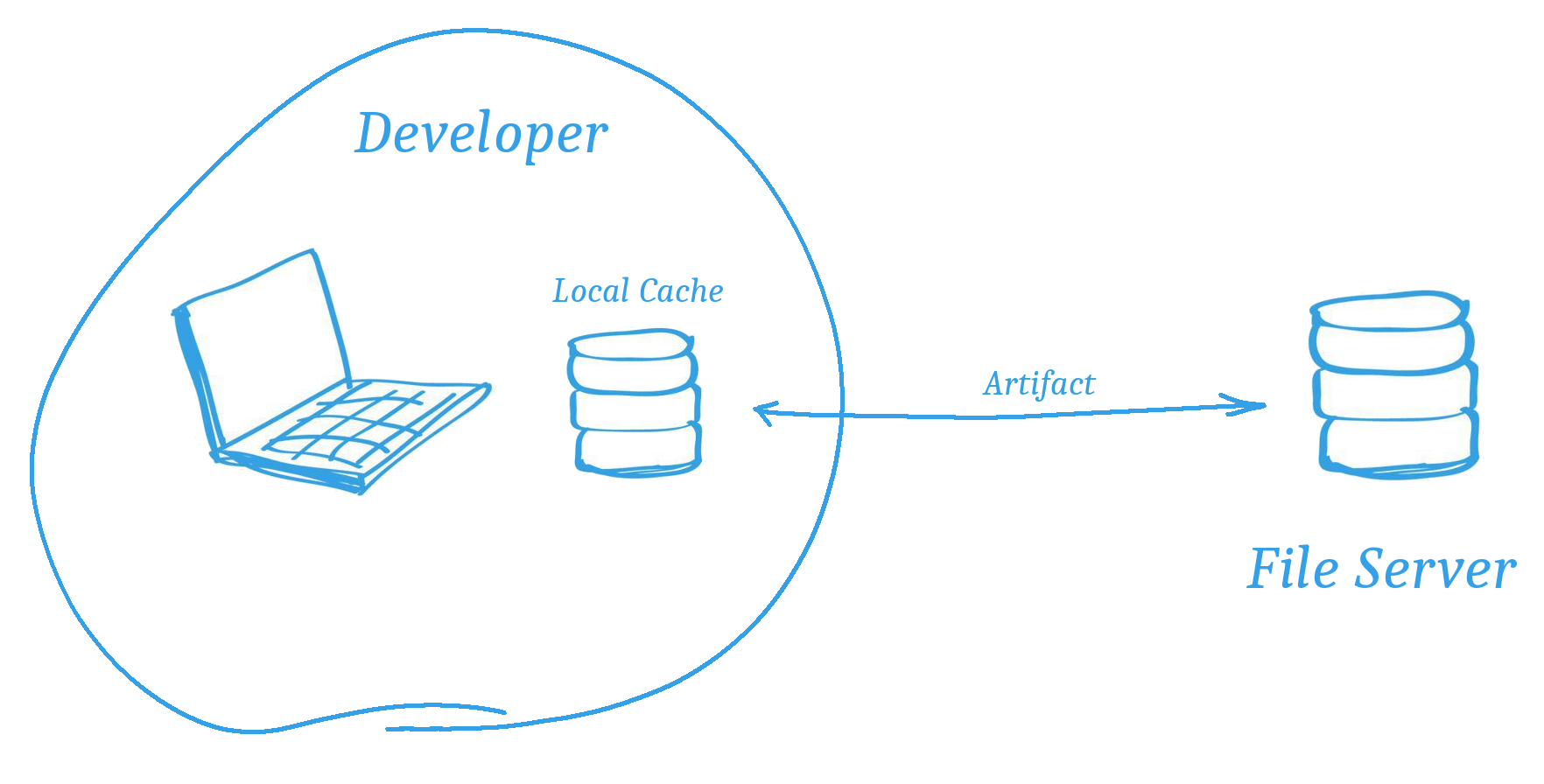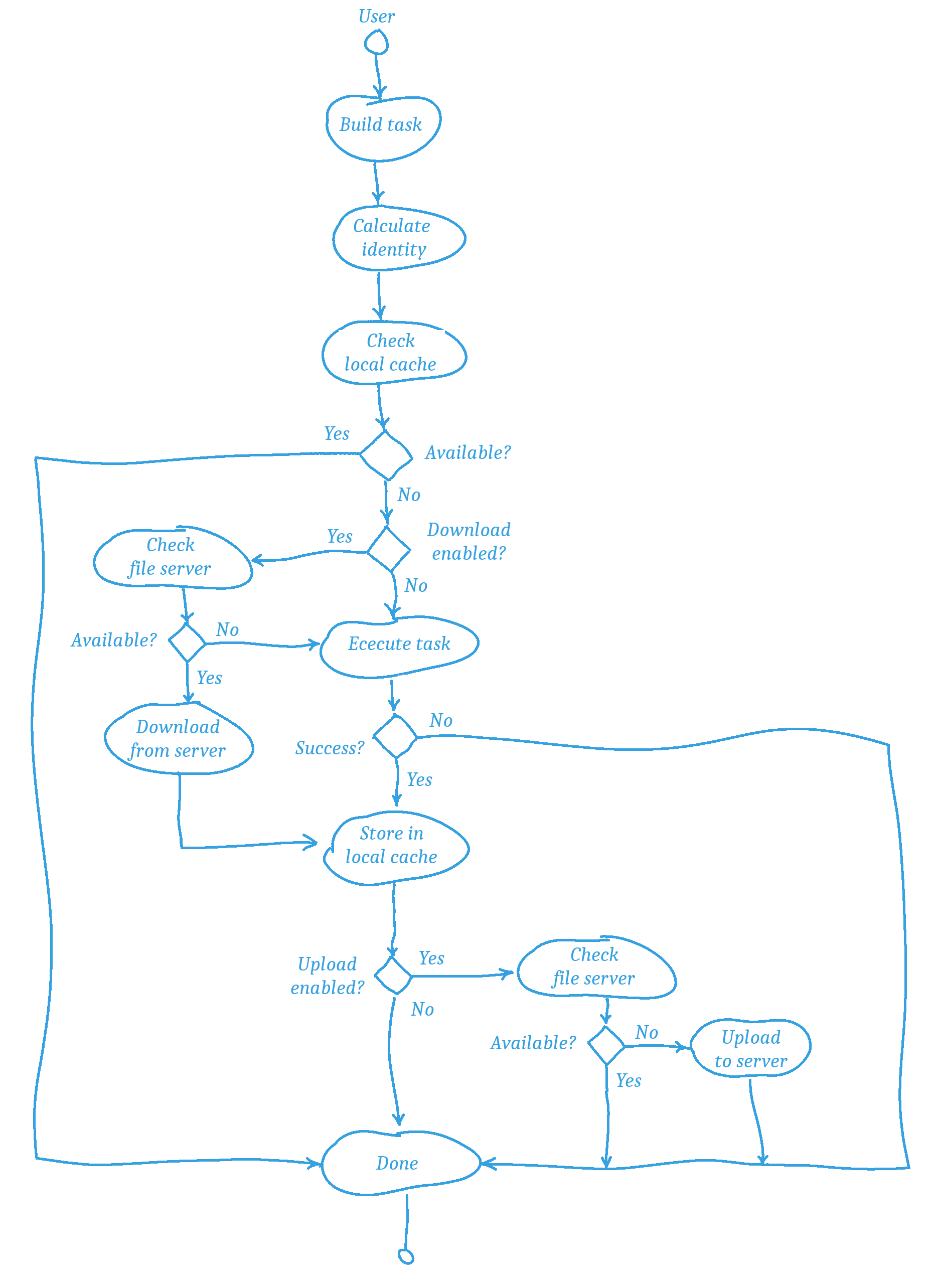Architecture¶
Overview¶
Jolt is a tool executing user-defined tasks. Execution is carried out either locally on a user’s computer or remotely on clustered workers. Different types of cluster infrastructures are supported through plugins.
When a task is executed an artifact containing files and metadata is created. The artifact is shared among users and workers in the network by the means of storage providers (file servers). Again, different types are supported through plugins.
In a typical configuration, automation software such as Jenkins may trigger tasks to be executed on a cluster of workers. Resulting artifacts are stored on the file server, ready to be downloaded by users attempting to execute the same tasks.

Artifact Cache¶
All task artifacts are stored in a local cache directory. They are content addressable, meaning they all have a unique and reproducible identity. This identity allows the artifacts to be consistently exchanged between local and remote caches.

The identity is a SHA1 sum of different attributes that may influence the output of the task, as illustrated below. Such influence includes the source code of the task, task parameters and their assigned values, the content of files and scm repositories, the identity of dependency tasks, etc.
The SHA1 digest is used as a key when looking up artifacts both locally and remotely.
Execution¶
The diagram below illustrates what happens when a task is executed by a user.
